The Best Leadership Links to Read Right Now
Today we dispatched the January 2021 edition of our Leadership That Works Newsletter, a curated digest of the best leadership links from around the web, sent at the end of each month. Topics covered in this month’s best leadership links to read right now include beating work-from-home burnout, fixing your focus, learning how to speak up on issues that matter, and more. As always, we’re sharing the articles from our newsletter here in case you’re not subscribed to our mailing list. If you find these links enriching, you can sign up to receive our newsletter here.
Leaders Must Ask, ‘Is It Right?’
This month we observed Martin Luther King Jr. Day, celebrating the life and achievements of one our nation’s most revered, influential, and effective civil rights leaders. In a speech MLK gave in 1967 entitled “America’s Chief Moral Dilemma,” he said the following: “And we must know on some positions, cowardice asks the question, ‘Is it safe?’ Expediency asks the question, ‘Is it politic?’ Vanity asks the question, ‘Is it popular?’ But conscience asks the question, ‘Is it right?’ And there’re times when you must take a stand that is neither safe nor politic nor popular, but you must do it because it is right.” Now, more than ever, leaders would do well to heed his advice. Read more of the transcript of this powerful speech in The Atlantic.
Battling the ‘Infodemic’
A comprehensive report released this month, the 2021 Edelman Trust Barometer, which surveyed over 33,000 respondents in 28 countries, finds “an epidemic of misinformation and widespread mistrust of societal institutions and leaders around the world.” Among the most compelling insights revealed is a broader mandate for leadership in an age of anxiety—with 68% expecting CEOs to “fill the void left by government in fixing societal problems,” and 86% hungering for leaders to show the way on issues such as the pandemic, job loss, climate change and racial justice. A majority of those surveyed feel fatigued by rampant disinformation—an “infodemic”—and are increasingly looking to their employers for reliable information rather than seeking news from the media or government. The report urges leaders to respond by acting on a broader set of concerns for society, providing trustworthy content, using facts and empathy, and forging smart partnerships. For more, read the full report and the robust slate of actionable insights.
“If you figure out how to make a goal easier, you’re more likely to succeed,” explains this New York Times self-help piece on achieving your dreams for 2021. Although the article has a health focus, it contains helpful tips for habit-building that apply across disciplines and goal-types. Habit science shows that the key to making an objective more approachable is “reducing friction,” which entails “removing an obstacle or coming up with a strategy that makes a task easier to do.” To kick friction to the curb, you have to understand its three primary incarnations—distance, time, and effort—and reduce the constraints from at least one of them. No matter the goal, start by asking yourself, “what would make it easier for me to do this?” and go from there. Read the full post to get all the insights and examples for building better habits this year.
**For more on habit science, explore The Blueprint, which advocates an incremental, small-steps approach for reaching your leadership goals and stewarding people through turbulence.
Silence Is a Risk
As an unending tide of urgent societal issues surface daily in the global debate, today’s corporate leaders must be prepared to know both when and how to speak up. CECP (Chief Executives for Corporate Purpose) CEO Daryl Brewster has penned a step-by-step, how-to guide for leaders faced with responding to a bevy of high-stakes issues—including “race and racism, diversity, inclusion, equity, civic engagement, gender identity, gender and sexual violence, marriage equality, immigration, poverty, gun control, climate change, abortion, religion freedoms,” and more. While not every topic requires a statement, when deciding whether or not to add their voice to a specific issue, leaders should consider that, “silence is a risk; stakeholders demand to know what a company believes about an issue and the actions it will take to address it.” If you decide to engage on an issue that aligns with company values, “consistency and legitimacy are key.” Read the entire list of recommendations and questions for reflection on CECP’s website.
Just Say No
If 2020 taught us anything, it’s that uncertainty is the new normal; we’ve habituated to the unknown. But we still have to plan for the future, prioritize, and get things done. “When the future is uncertain, we need our priorities to be blazingly obvious to us all the time,” asserts this wise how-to post in Greater Good Magazine. When we allow the uncertainty of the world at large to encroach on the clarity of our to-do list, we can easily become overwhelmed by the crush of responsibilities and tasks. The article offers a simple solution: As leaders, “we need to decide on our top priorities and then spend 95% of our time doing only those activities,” and with diligence, even near-militance, we must begin “saying ‘no’ to everything else.” One way to do this is make a “top five” list and devote the majority of our time to those five things, leaving a few hours or so each week to deal with everything else. This practice can be supported with shrewd tactics for structuring and “time-blocking” all of which is covered in the full post.
Beating Back WFH Burnout
As 2021 sprints into gear, it’s clear that the ubiquity of remote work shows no signs of receding and, according to this Harvard Business Review article on combating work-from-home burnout, a significant portion of employees are predicted to remain remote in the post-Covid world. Given the situation, “leaders have a responsibility to consider the experience of their workers most affected” by burnout, and to “create an inclusive remote culture” that benefits the entire organization. There are three vital steps to protect employees from frazzle and fatigue, the first of which is being proactive about checking in on remote personnel. Not everyone is wired to “let you know how they’re doing and what they need,” so leaders need to act with foresight, anticipating people’s need to be attuned to and heard. The full article follows up this first call-to-action with two more pieces of actionable advice.
**For more on this, explore our three guiding principles for managing remote teams.
Must-Read Biz Books for 2021
Experts at Gartner, a leading research and advisory company, have collaborated to produce their recommendations for the top ten essential business books executives should read this year in order to “tackle a post-COVID-19 world, build more inclusive cultures, and reimagine leadership.” In great company with many leadership luminaries and contemporaries, The Blueprint’s on the list.
Posts & Insights from ConantLeadership
|
||
|
||
|
||
|
||
|
More from ConantLeadership:
Five Fundamentals of Effective Crisis Leadership
The Power of a Leadership Foundation
The Valuable Investment of Leadership Development
Enjoyed these links? Explore our suite of leadership resources here, sign up for one of our 2021 virtual BLUEPRINT Boot Camps here, or join our mailing list here.
“An essential book on leadership.”
– DAN PINK, author of WHEN and DRIVE
Announcing our new bookstore.
Our exclusive bookstore is now live. We’re offering signed books at a special price for the new year through January 31, 2021. As we rejoice in bringing a close to 2020 and welcome a new season of life and leadership in 2021, this is a celebratory offer just for you—our valued members of the ConantLeadership community.
(Cover photo by Ruthson Zimmerman on Unsplash)

“Doug Conant is remarkable—and so is this work.“
– Stephen M. R. Covey
Author of The Speed of Trust
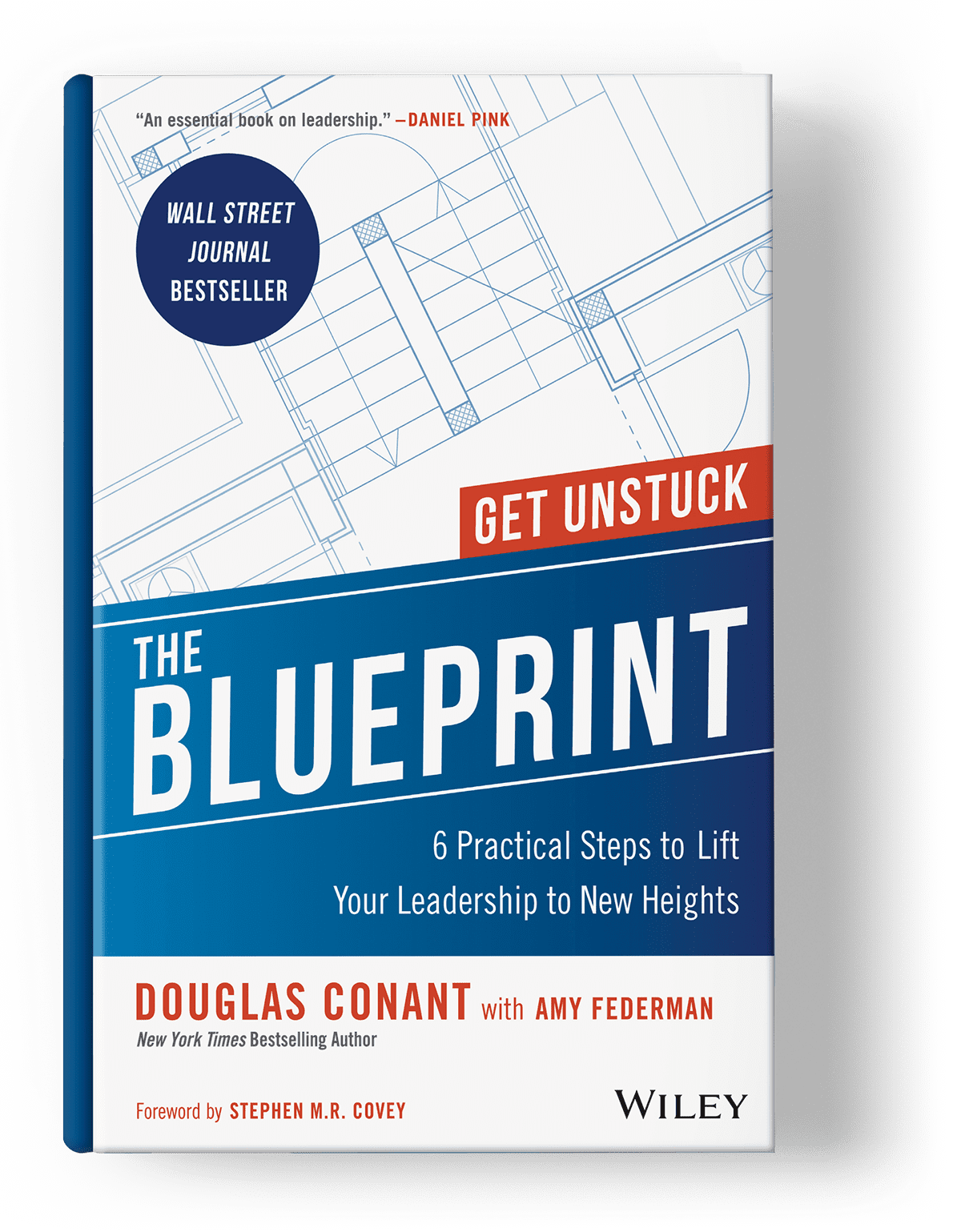
The Blueprint
6 Practical Steps to Lift Your Leadership to New Heights
By Douglas Conant with Amy Federman
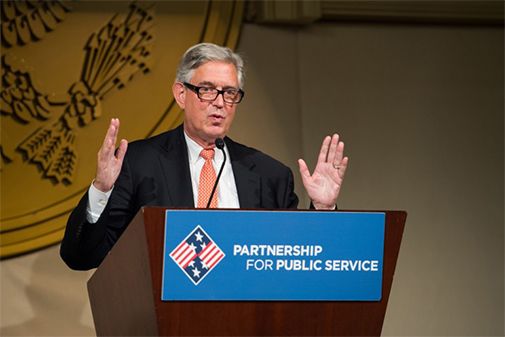
Have Doug Speak at Your Event
Doug works collaboratively with event organizers to customize his material for each audience.

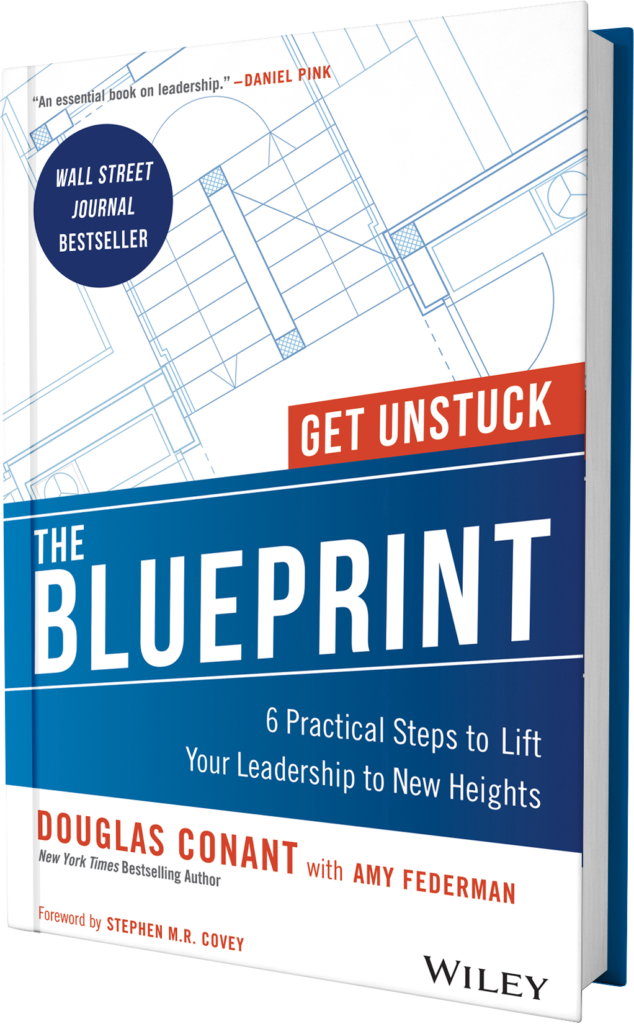
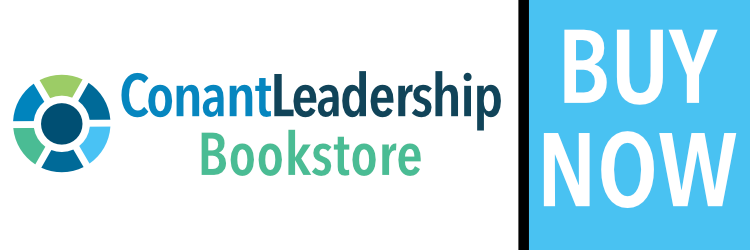

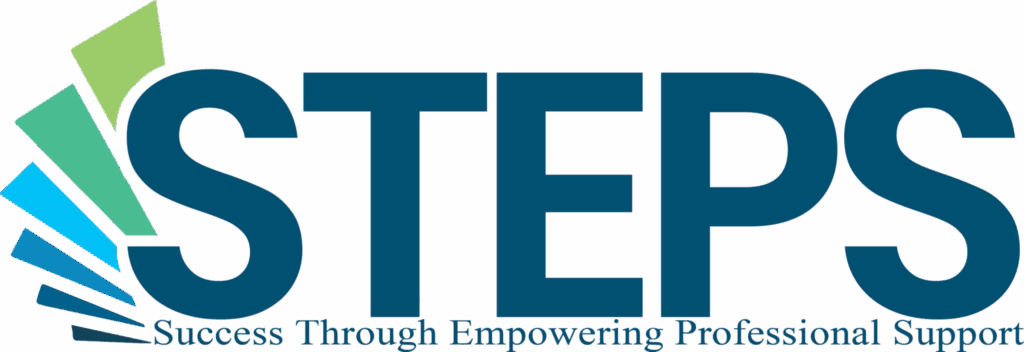
0 Comments